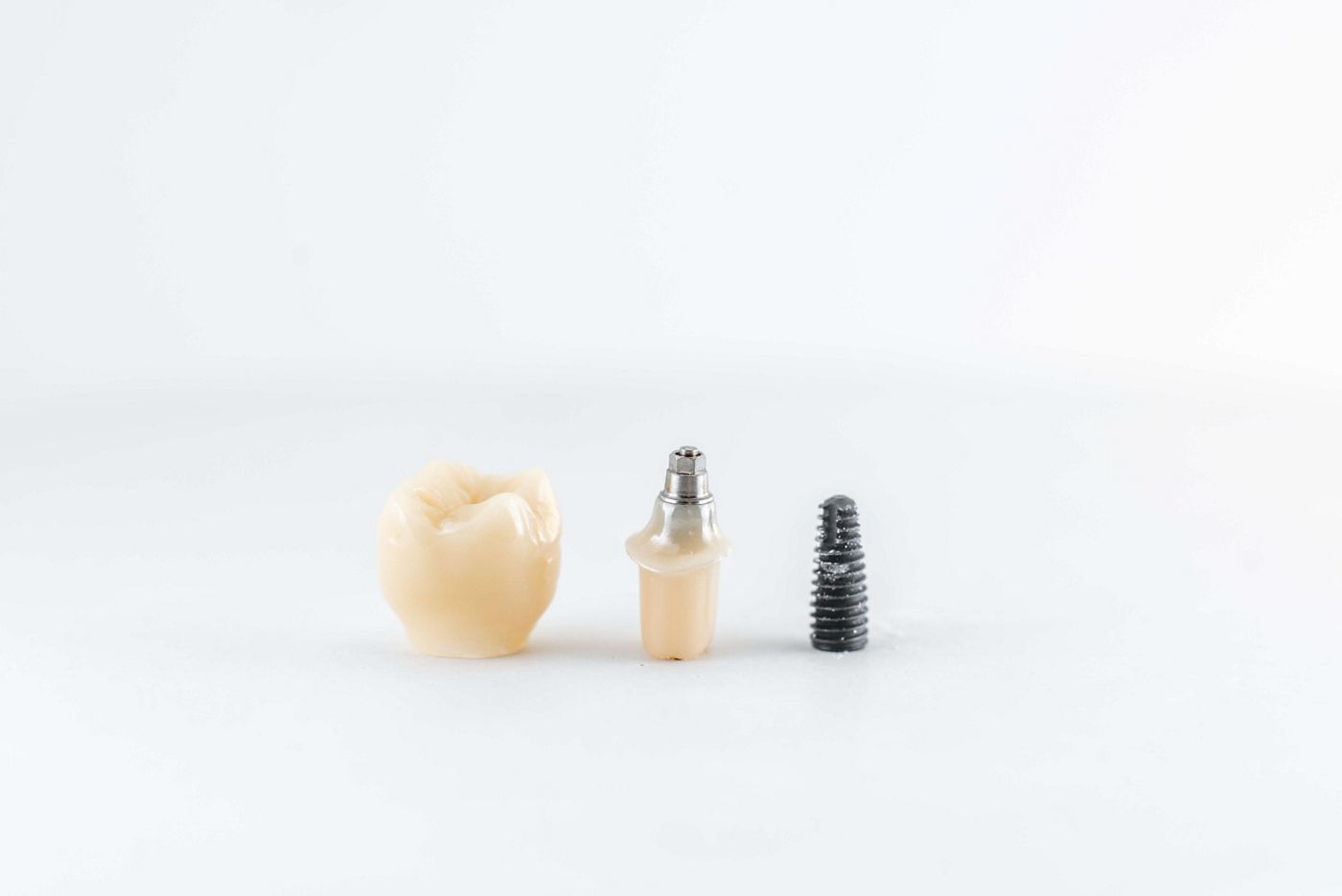How long does a dental implant last?
Dental implant is a long-term solution for tooth replacement, offering a blend of durability and functionality.
Known for their longevity, these implants significantly improve oral health and aesthetics. Understanding their lifespan and factors influencing longevity is a common consideration for those considering this treatment.

Dental implant lifespan indications
Dental implants are renowned for their long-term viability, often lasting for decades. The lifespan of a dental implant typically ranges from 20 to 30 years, or more, depending on various factors such as material, maintenance, and lifestyle choices. They are designed to be a durable, long-term tooth replacement solution, integrating with the bone to provide a stable and strong foundation for artificial teeth.
However, their longevity isn't just a product of their design; it heavily depends on how well they are cared for. Regular dental check-ups, proper oral hygiene, and avoiding harmful habits like smoking can significantly extend a dental implant's life. Understanding the factors that contribute to the durability of dental implants is crucial for anyone considering this option for tooth replacement.
What is a dental implant made of?
Dental implants are typically composed of three main components: the implant, the abutment, and the crown.
The implant itself, which is the part inserted into the jawbone, is usually made of titanium. Titanium is chosen for its strength, durability, and most importantly, its biocompatibility – it's not rejected by the body and can integrate with the bone tissue, a process known as osseointegration.
The abutment is attached to the implant and protrudes above the gum line. It acts as a connector between the implant and the crown. Abutments are generally made of titanium, ceramic, or a combination of both.
The crown, which is the visible part of the implant, is typically made of porcelain or ceramic, materials chosen for their aesthetic appeal and resemblance to natural teeth.
In addition to these dental materials, research and development in dental technology have introduced new materials like zirconia. Zirconia implants are gaining popularity due to their tooth-like colour and hypoallergenic properties.
The choice of material can significantly impact the implant's appearance, compatibility, and longevity, making it a critical consideration in the dental implant process.
Types of dental implants
Understanding the types of dental implants is essential for anyone considering this dental procedure. Primarily, there are two types: endosteal implants and subperiosteal implants.
Endosteal implants
The most commonly used type of endosteal implants are placed directly into the jawbone. They are typically made of titanium and shaped like small screws. After the implant is placed, a period of healing is required for osseointegration to occur, where the implant fuses with the jawbone. Once healed, a second surgery is done to attach an abutment, which will hold the artificial tooth or teeth.
Subperiosteal implants
These implants are a suitable alternative for patients who do not have enough healthy jawbone to support endosteal implants. Subperiosteal implants are placed under the gum but on, or above, the jawbone. This type of dental implant may be used in cases where bone augmentation might be difficult, or the patient prefers a less invasive procedure.
The choice between endosteal and subperiosteal implants depends on the patient's jawbone health, preferences, and specific dental needs. Each type offers unique advantages and caters to different situations, making a consultation with a dental professional crucial for the right decision.

What determines the longevity of dental implants?
The durability of a dental implant is influenced by several factors, which can be broadly categorized into material quality, patient lifestyle, and oral hygiene practices.
The material of the implant. Titanium and zirconia, known for their strength and biocompatibility, can significantly impact the implant's longevity. The advancement in dental technology has also improved the quality and durability of these materials, enhancing their lifespan.
The patient´s lifestyle choices. Habits such as smoking or excessive alcohol consumption can hinder the healing process and weaken the bone structure, reducing the implant's lifespan. Similarly, diets rich in sugar and acidic foods can contribute to gum disease, which can compromise the stability of the implant.
Regular oral hygiene practices. Brushing twice a day, flossing, and regular dental check-ups can prevent infections and diseases that might affect the implant. Neglecting oral hygiene can lead to peri-implantitis, a destructive inflammatory process affecting the soft and hard tissues surrounding the implant, potentially leading to its failure.
Factors that can reduce the lasting power of an implant
While dental implants have a high success rate, certain factors can lead to their failure. Understanding these risks is crucial for anyone considering or already having a dental implant.
Insufficient care and maintenance
Just like natural teeth, dental implants require regular care and maintenance. Poor oral hygiene can lead to plaque buildup, gum disease, and ultimately, implant failure. Regular brushing, flossing, and dental check-ups are essential to maintain the health of the implant.
Insufficient bone
Adequate bone density and volume are crucial for the success of a dental implant. Conditions like osteoporosis or significant bone loss due to previous dental issues can jeopardize the implant's stability. In such cases, bone grafting may be necessary before implant placement.
Smoking
Smoking significantly affects oral health and can impede the healing process after implant surgery. It restricts blood flow to the gums, delaying healing and increasing the risk of infection, which can lead to implant failure.
Teeth grinding
Chronic teeth grinding (bruxism) can exert excessive pressure on the implant, leading to damage or failure. Wearing a mouthguard at night can help protect the implant and surrounding teeth.
Medical conditions
Certain medical conditions, such as diabetes or autoimmune diseases, can affect the body's healing ability and increase the risk of implant failure.
Age
While age itself is not a limiting factor, older adults may have conditions or take medications that can impact the success of a dental implant.

What can you do to make dental implants last longer?
Extending the life of a dental implant involves a combination of good oral hygiene, lifestyle choices, and regular dental care. Brushing twice daily, flossing, and using an antibacterial mouthwash can help prevent infection around the implant. Additionally, avoiding hard and sticky foods can protect the implant from undue stress.
Regular dental check-ups are essential. These visits allow the dentist to monitor the health of the implant and address any issues early on. Dental professionals can also provide cleanings specifically designed for implants, removing any plaque buildup that regular brushing might miss.
Lifestyle choices like quitting smoking and reducing alcohol intake can significantly improve the overall health of the mouth, benefiting the implant. Managing chronic conditions like diabetes and maintaining a healthy diet rich in vitamins and minerals also contribute to the longevity of the implant.
Dental implant durability: expectations vs. reality
When considering dental implants, it's important to have realistic expectations regarding their durability. While dental implants are designed to be a long-term solution, they are not invulnerable. Their lifespan can be significantly affected by factors like material quality, oral hygiene, and lifestyle choices.
Most dental implants last for at least 20 to 30 years, with many lasting even longer. However, this doesn't mean they are entirely maintenance-free. Regular check-ups and proper oral care are essential to ensure their longevity. It's also important to remember that while the implant itself might last for decades, the crown attached to it may require replacement sooner due to wear and tear.
Patients should discuss with their dental professional about what to expect in terms of durability and maintenance. Understanding the realities of dental implant care can help in setting appropriate expectations and making informed decisions about this treatment.